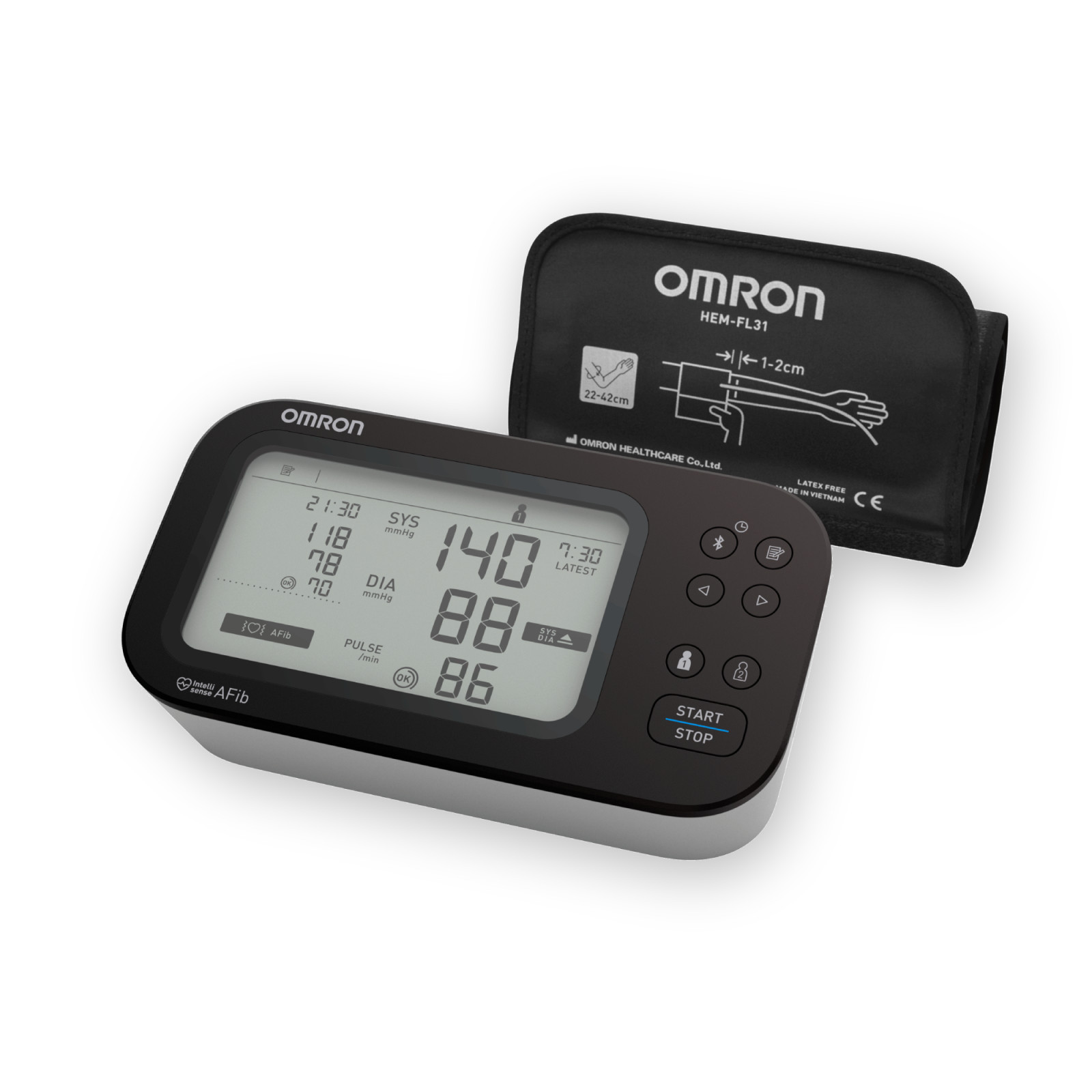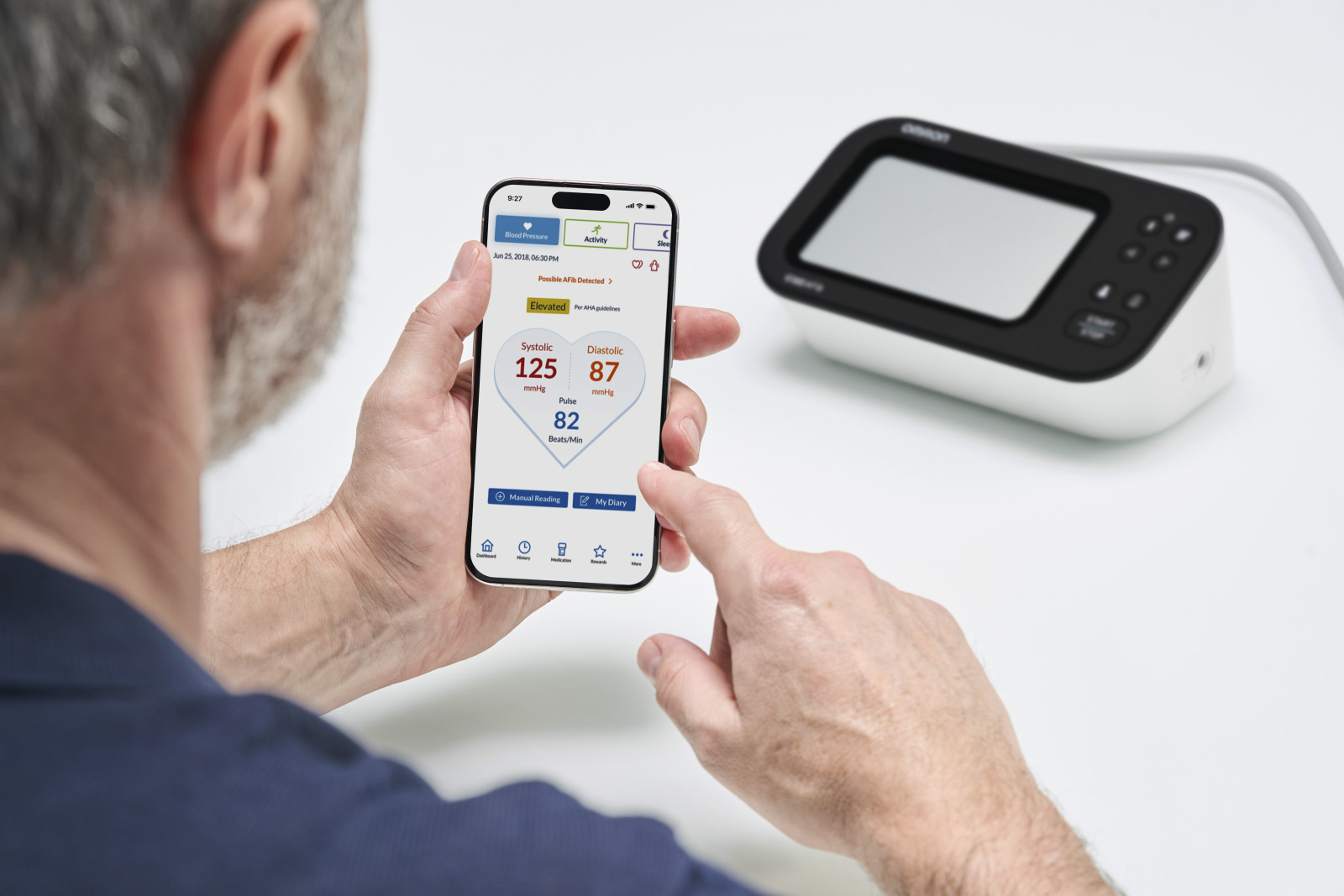
The Importance of Regular Cardiovascular Screenings: How OMRONs Technology Supports Heart Health Monitoring
Learn more
Why Regular Cardiovascular Screenings Matter
Cardiovascular disease (CVD) continues to be the leading cause of death in Europe. Early detection through regular cardiovascular screenings significantly reduces the risk of severe cardiac events, such as myocardial infarction or stroke. These screenings allow healthcare professionals to identify key risk factors—such as hypertension, high cholesterol, and arrhythmias—before they progress into life-threatening conditions.
Routine screenings also offer an opportunity for patient education and engagement. When healthcare professionals explain the importance of preventive care, patients are more likely to adopt healthy lifestyle changes and adhere to medical advice. By identifying cardiovascular risks early, clinicians can implement targeted interventions and reduce long-term healthcare costs and complications.
Understanding Cardiovascular Disease Screening Guidelines
Adhering to up-to-date cardiovascular disease screening guidelines is essential in clinical practice. The 2024 ESC Guidelines on Cardiovascular Disease Prevention recommend:
Blood Pressure Checks: At least once every 2 years for adults aged 20+, and annually for those over 40 or with risk factors.
Lipid Profiles: Every 4–6 years in healthy adults, and annually for individuals with known cardiovascular risk.
Diabetes Screening: For adults with obesity or a family history of diabetes.
Cardiovascular risk screening is especially crucial in patients with comorbidities like obesity, diabetes, or a history of smoking. Regular monitoring ensures timely intervention and improved long-term outcomes.
The Role of Heart Health Monitoring in Preventive Care
Heart health monitoring is a practical extension of traditional cardiovascular screenings. While clinical visits provide valuable data at a single point in time, at-home monitoring allows for continuous tracking of key indicators, particularly blood pressure. Sustained elevated blood pressure often goes unnoticed until complications arise, making self-monitoring a crucial preventive tool.
When patients track their blood pressure or pulse regularly, healthcare providers can detect early signs of deterioration and adjust treatment plans more effectively. This proactive approach supports better disease management and empowers patients to take an active role in their heart health.

How OMRON’s Technology supports Heart Health Monitoring
OMRON offers advanced heart health monitoring devices designed to support both clinical practice and patient self-care. These monitors are clinically validated for accuracy and user-friendliness, making them reliable tools for continuous cardiovascular observation.
Many OMRON devices include Bluetooth connectivity and mobile apps that allow patients to log and share their health data securely with healthcare providers. By encouraging regular use, OMRON’s technology contributes directly to early detection, better disease control, and improved patient adherence.
The Benefits of Using Heart Health Monitors
Heart health monitors provide immediate, actionable insights into a patient’s cardiovascular status. They are particularly beneficial in the management of hypertension, one of the most common modifiable risk factors for CVD.
Key benefits include:
Ease of use: Devices are designed for all age groups, with clear displays and simple instructions.
Data sharing: Mobile integration enables patients to send accurate readings to their healthcare teams.
Improved engagement: Patients who monitor at home are more likely to follow through with lifestyle and medication plans.
Regular monitoring not only helps prevent acute events but also improves treatment adherence and patient-provider communication.
Conclusion
Regular cardiovascular screenings and continuous heart health monitoring are essential for preventing heart disease and improving patient outcomes. By following current European guidelines and incorporating heart health monitors into care routines, healthcare professionals can offer more comprehensive, preventive cardiovascular care.
OMRON’s technology makes at-home monitoring accessible and reliable, empowering patients to stay informed and proactive. For healthcare professionals, these tools provide valuable data for better decision-making. Together, routine screenings and smart monitoring devices form a powerful strategy for protecting heart health and reducing the burden of cardiovascular disease.
Related blogs
Related products
References
● European Society of Cardiology (ESC). (2024). ESC Guidelines on Cardiovascular Disease Prevention in Clinical Practice.
https://www.escardio.org/Guidelines/Clinical-Practice-Guidelines/Cardiovascular-Disease-Prevention
● European Heart Network. (2022). Diet, Physical Activity and Cardiovascular Disease Prevention in Europe.
https://ehnheart.org/publications-and-papers/publications.html
● World Health Organization (WHO) – Europe. (2023). Cardiovascular Diseases Factsheet – European Region. https://www.who.int/europe/news-room/fact-sheets/item/cardiovascular-diseases
● American College of Cardiology. (2023). Hypertension and Cardiovascular Risk Management.
https://www.acc.org/latest-in-cardiology/articles/2023/02/01/14/33/hypertension-and-heart-disease
● Mayo Clinic. (2024). Understanding Heart Health Monitoring and Preventive Care.
https://www.mayoclinic.org/diseases-conditions/heart-disease/in-depth/heart-disease-prevention/art-20046502
OHEAPP-866







